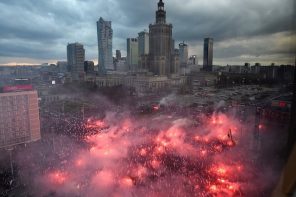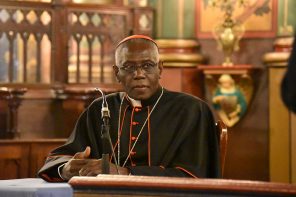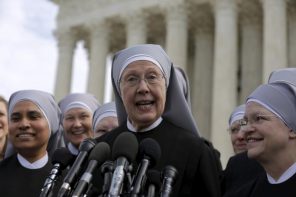The great sociologist of religion, Max Weber, famously complained of what he called “the routinization of charisma” in the era of institutionalized religions. In such a world, the Pope bears a certain charisma because he occupies a role, and the throne of Saint Peter, not for any reason particular to his own character or persona. Weber also suggested that human beings are most often locked in “iron cages” of their own devising. It is a damning and fairly tragic picture of the fate of most moral communities, including the a Church, today.
As the thick web of lying cover-ups, and allegations of abuse intensify, and as the swirl of intrigue expands to new states in the US, edging ever closer to the inner circle of the current Pope, the central problem is coming into sharper focus.
I suggested in a previous post that the abuse at issue here is the abuse of power, not sexual abuse per se. I hope it is clear that, in saying this, I am not unaware of the enormous damage that is done to young children when they are sexualized before their time. But I am concerned that the Left, to the degree that it participates in the sexual obsessions of the media and the culture, runs the risk of diluting the real cause for outrage here.
The paradox at issue in these cases is that sexual abuse of children, like rape, is not primarily a sexual offense. It is primarily an exertion of power.
And in viewing it in this way, the great paradox lying at the heart of this, or any church, becomes clearer. the revolution has become a corporation. The Catholic Church is also an enormous bureaucracy, and in Rome’s special case, the Vatican is literally a state-within-the-state.
The challenge, of course, for any bureaucracy lies in holding the bureaucrats responsible. Bureaucracy has a maddening capacity to hide responsibility behind a veil that is one-part secrecy, one part moral callousness, and one-part crass collusion and self-protection.
In 1979, Jon Gunnemann offered an interesting way of looking at the shared paradox of Marxist and Christian attitudes toward revolution. The book, called The Moral Meaning of Revolution, offered the following new way of seeing, aimed specifically at the Christian churches:
The point is not to abandon God talk for political talk, or even to translate God talk into political talk, nor to discern the political and worldly implications of the Gospel. All of these assume the division between the Gospel and the political. The point is rather to find a form of discourse in which it is recognized that the society of Christ, like any society, has power relations and thus needs to ask what patterns of authority are just and what unjust. (257, italics mine)
The society of Christians is like any other society. It is an institution with complex power relations, and power can always be abused. When it is abused, it is important to have regulatory structures in place that can hold the power-holders accountable to the people, or the flock, they serve. Those are the institutions that have failed us dramatically in Rome.
Instead of rules and regulations, we have been treated to vague invocations of tradition and the magisterium, as well as vacuous quotations out of context from the gospels.
These are not sex scandals, and they are not indictments of the celibate life. These are abuses of power on a shocking scale; that is how they should be reported and that is how they should be handled. If there is anything distinctively Christian at work here, that should seem to involve rather the fundamental notion that if God takes sides, then God sides always with the poor, the marginalized or the oppressed.
It is this fundamental moral orientation that the Church is currently failing to embody.




